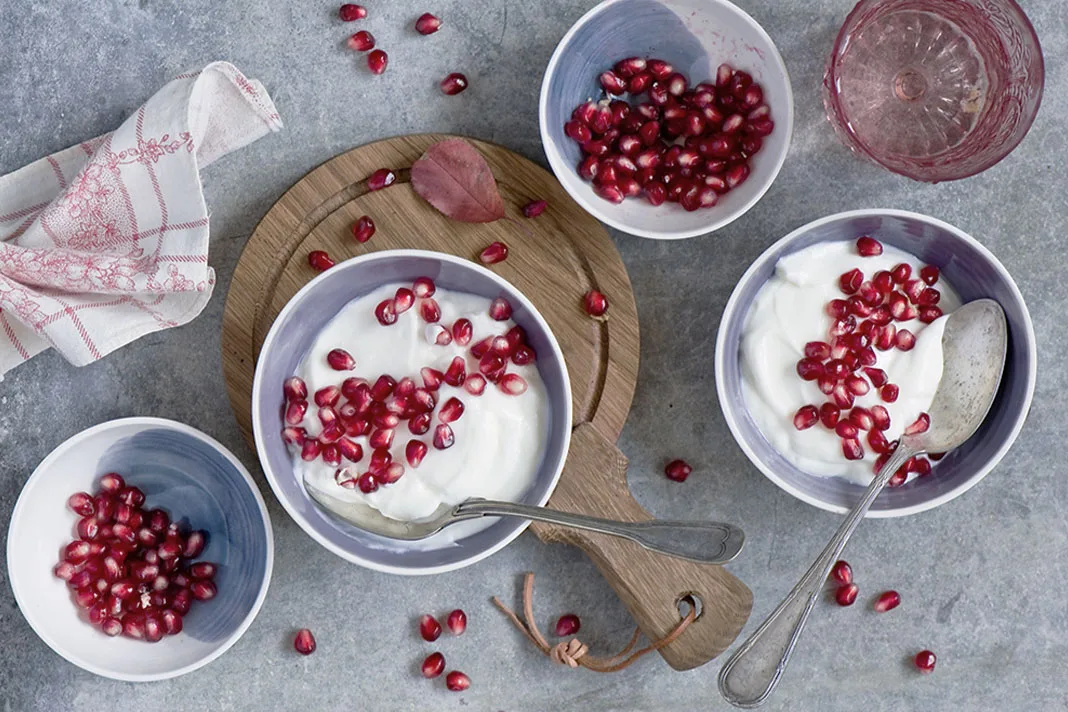Good gut foods are the latest craze in healthy eating. We round-up six of the best to try today
Words Joy Montgomery
As the world discovers the health-transforming benefits of a healthy gut, ‘good’ bacteria has become the buzzword of choice. With bacteria able to influence our behaviour via the 100 million neutrons in our stomach, our gut is known as the second brain. This means that what you eat is essential for maintaining all-round good health – physical and psychological.
If you’re not sure where to start, we’ve rounded-up the six essential good gut foods for beginners. Happy tummy = happy life.
YOGHURT
Not all gut-loving foods are alien to our native diet. Good old yoghurt is a great probiotic power food. Look out for the phrase ‘live active cultures’ on the label and stick to plain, rather than flavoured yoghurt, to avoid added sugar which can feed the bad bugs in your gut.
KEFIR
Touted as this year’s hot health ingredient, kefir is a fermented milk drink popular in Eastern Europe. With a smooth and slightly tangy flavour, the drinkable yoghurt contains a dozen different types of live active cultures. It is also 99% lactose-free, making it easier to digest.
SAUERKRAUT
Coming under the ‘fermented food’ category, sauerkraut is finely cut cabbage that has been fermented by various lactic acid bacteria. Labelled as the next big thing in health food, it is high in vitamin C and K and stimulates the growth of good bacteria in your gut.
PICKLES
Another fermented food, pickles are packed full of probiotics and are an easy way to introduce good gut food into your diet. Look out for those made with brine rather than vinegar. While pickles don’t have a lot of vitamins and minerals themselves, including them in your diet can boost the probiotic content of any meal you eat.
KIMCHI
This Korean staple side dish relies on lactic acid fermentation to turn cabbage or root vegetables into a spicy strong flavoured side dish that’s packed with vitamin A, B and C. However its biggest benefit is healthy bacteria called lactobacilli, which aids digestion.
SOURDOUGH
Made by the fermentation of dough using naturally occurring lactobacilli and yeast, sourdough is chewy and has a mildly sour taste. It is said that the lengthy fermentation process is the most beneficial aspect of sourdough. This is because microbes have had more time to break down the protein strands that might case digestive irritation.







